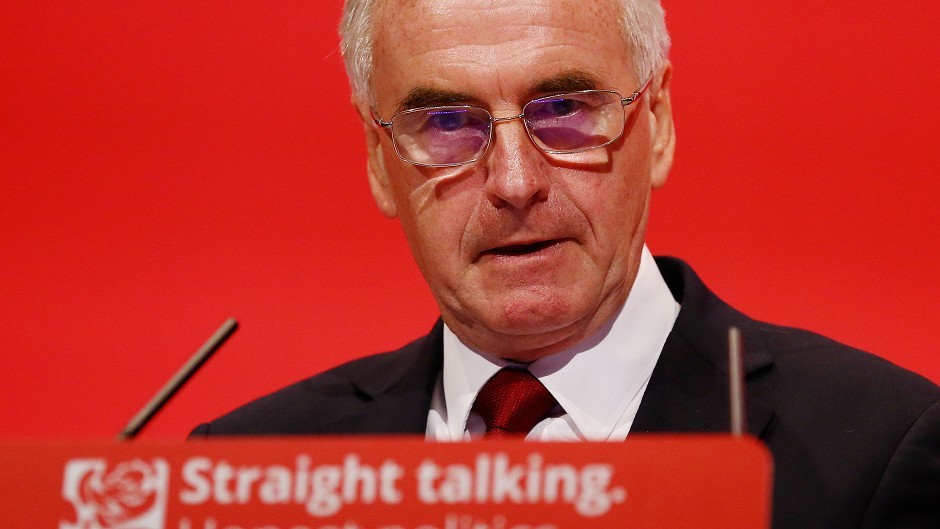Shadow chancellor John McDonnell’s “embarrassing” U-turn over the party’s economic policy was the result of pressure from Scottish Labour, according to a party veteran.
Frank Field, chairman of the work and pensions committee, said the leftwinger had “given in” to his colleagues north of the border.
He also called for an English Labour party to “fend off further erosions” of its electoral base in England.
Mr McDonnell originally said the party would vote for George Osborne’s Charter of Budget Responsibility, which commits the UK Government to running an overall budget surplus by 2019 and every year from then on in “normal” times.
After subsequently urging Labour MPs to oppose the document, more than 20 rebelled and 37 failed to vote, although 16 are understood to have had permission to stay away from the lobbies.
Yesterday, Birkenhead MP Mr Field said his frontbench colleague had given into pressure from the Scottish Labour party and that unless Labour at Westminster made a “token stand” against the charter, its hopes in Scotland would be further “dashed”.
He added: “Two issues are at stake here. Labour lost heavily in 2015 because it appeared fiscally irresponsible.
“Signing up to the charter matters little one way or the other, but it does signify a change in heart by Labour to move towards a balanced budget.
“That was John McDonnell’s original position and he was right. He has, however, given into pressure from the Scottish Labour party that unless Labour in Westminster made a token stand against the charter, Labour’s hopes in Scotland would be further dashed.
“But here comes the other crucial finding from the election – Labour lost heavily because it appeared that the Scottish Labour dog wagged the English tail.
“Let the Scottish Labour party fight its own battles. We need an English Labour party to fend off further erosions of our electoral base south of the border.”
Mr McDonnell, who was barracked by Tory MPs during his Commons speech, repeatedly acknowledged the U-turn was “embarrassing” as he set out the party’s new position on the public finances.
He told the chamber he had not changed his mind on the “need to tackle the deficit”, but on the “parliamentary tactics”.
The charter was passed on Wednesday evening by 320 votes to 258, a majority of 62.
